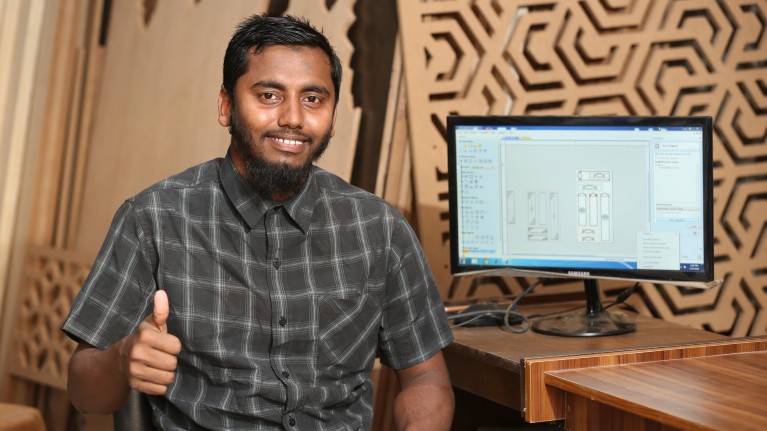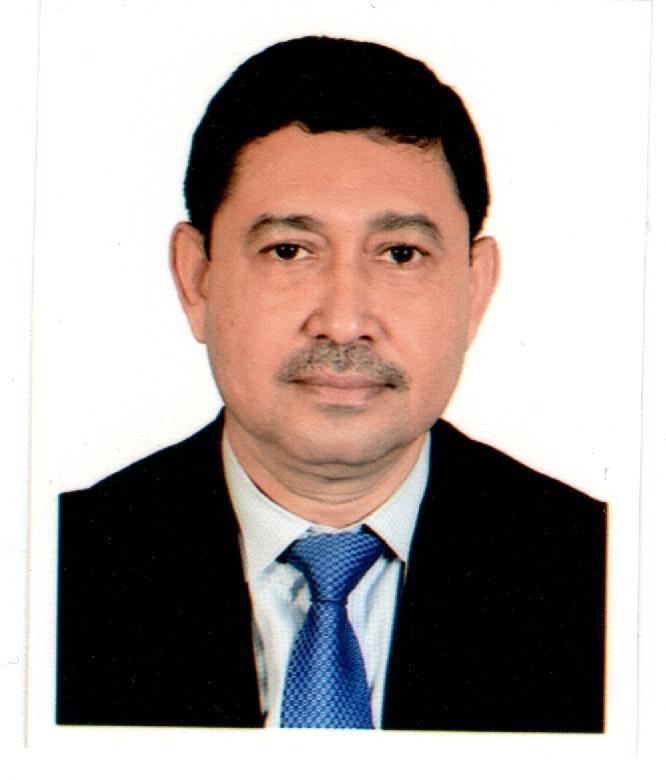Bangladesh
Bangladesh has a strong track record of growth and development, even in times of elevated global uncertainty. A robust demographic dividend, strong ready-made garment exports, resilient remittance inflows, and stable macroeconomic conditions have supported rapid economic growth over the past two decades. A strong recovery from the COVID-19 pandemic continued in FY22, although a recent surge in commodity prices has presented new headwinds.
Bangladesh reached lower-middle income status in 2015. It is on track to graduate from the UN’s Least Developed Countries list in 2026. Poverty declined from 43.5 percent in 1991 to 14.3 percent in 2016, based on the international poverty line of $1.90 a day (1).
Like many of its Asian neighbours, Bangladesh faces a major challenge trying to develop modern, employability skills for tens of millions of young women and men. It has a large informal sector, which accounts for 94.7 percent of the total employment in 2017 (2). Youth continue to be highly affected by the lack of opportunities, with the share of youth aged 15-24 not in employment, education or training (NEET), estimated at 27.8 percent in 2020 (3).
TVET has a huge role to play in equipping the vast young labour force of 15-29 years referred to as the country’s “demographic dividend” with employability skills and providing enhanced support services to ensure a better transition from school to work. TVET may also contribute to reducing poverty by providing employability skills, particularly to those who drop out of school early and to a large number of unemployed and underemployed adults.
Despite many reform initiatives by the government, the TVET sector needs further strengthening through reform of policies and systems in the labour market. Enhancing industry-relevance of TVET qualifications will furthermore require closer Government cooperation with the private sector. For one and a half decade, the ILO has worked closely with the Government of Bangladesh and its Social Partners to reform the TVET sector and to improve access for people to increase their skills and employability, in particular youth, women and people from other marginalized groups.
The impact of the COVID-19 pandemic had detrimental effects on the TVET sector, due to the nation-wide closure of all educational institutes for one and a half years, starting on 17 March 2020. Most students’ learning was effectively abolished for this duration, and learning and certification was only possible through limited online learning facilities in existence at the time. Only recently has the TVET returned to its prior activity level.
The ILO landmark programmes aim to strengthen and improve the environment for industry skills development, address the mismatch between the supply and demand for skills training, and drive the increased employability of millions of young women and men. ILO’s support to develop the skills system in Bangladesh has focused on skills system governance, development of skills policies and qualifications frameworks; delivery of quality skills training, expanding access to TVET, and involvement by the private sector.
Sources
(1) https://www.worldbank.org/en/country/bangladesh/overview
(2) https://ilostat.ilo.org/topics/informality/
(3) https://ilostat.ilo.org/topics/youth/
Country Assessment and Priority (CAP) – Bangladesh strategy for skills and lifelong learning (2022)
Situation Analysis of Bangladesh TVET Sector (2019) https://www.ilo.org/wcmsp5/groups/public/—asia/—ro-bangkok/—ilo-dhaka/documents/publication/wcms_735704.pdf_
A market systems approach to skills development has the potential to lead to more sustainable employment outcomes at scale, by taking a holistic approach to addressing both supply- and demand-side factors, as well as tackling the cost of skills development programmes and strengthening the link between market needs and the important role of regulation and standards.
Drawing on three case studies, this paper explores how a market systems development (MSD) approach to skills development can lead to employment outcomes and foster sustainable impact through systemic change that is owned, maintained, and further evolved by local stakeholders.
Skills 21 project addresses following priority areas, in particular:
- Strengthening the quality of the TVET/Skills development system, including development of the Bangladesh National Qualifications Framework (BNQF) to harmonize qualification pathways across technical and formal education;
- Creating model TVET institutes which are inclusive, environmentally conscious, high-quality and labour-market responsive;
- Establishing a framework for a more conducive legislative, regulatory and institutional Sector Wide Approach (SWAP) in the TVET/skills development sector to improve TVET governance;
- The project also aims to support collaboration between companies and relevant training providers to develop and implement demand-driven education and training programmes.
As a result of the measures taken to enhance disability inclusion, enrolment of students with disabilities at DTE's TVET institutes increased significantly with ILO support.
Nine TVET institutes have now established partnerships with the Organization for Disability Peoples (OPDs).
Out of 118 TVET institutes under DTE, 99 now have an Annual Disability Inclusion Action Plan featuring a budget and timeline.
Dissemination of DTE's model of disability inclusion in TVET institutes supports the inclusion of 12 different types of persons with disabilities in their monitoring system.
Skills 21 – Empowering citizens for inclusive and sustainable growth - Midterm evaluation
The apprenticeship programme is being implemented through local partners and has resulted in improved employability, school-to-work transitions, personal and professional development, and access to jobs. Here are two case studies that show how the programme is affecting the livelihoods of two young people in rural areas of Bangladesh.
To read the rest of this article, click on the PDF below.
The ILO Skills and Lifelong Learning monthly newsletter highlights recently uploaded publications, reports, research items, videos and upcoming events on skills development and lifelong learning.
Sign up to receive the Newsletter by clicking here.



